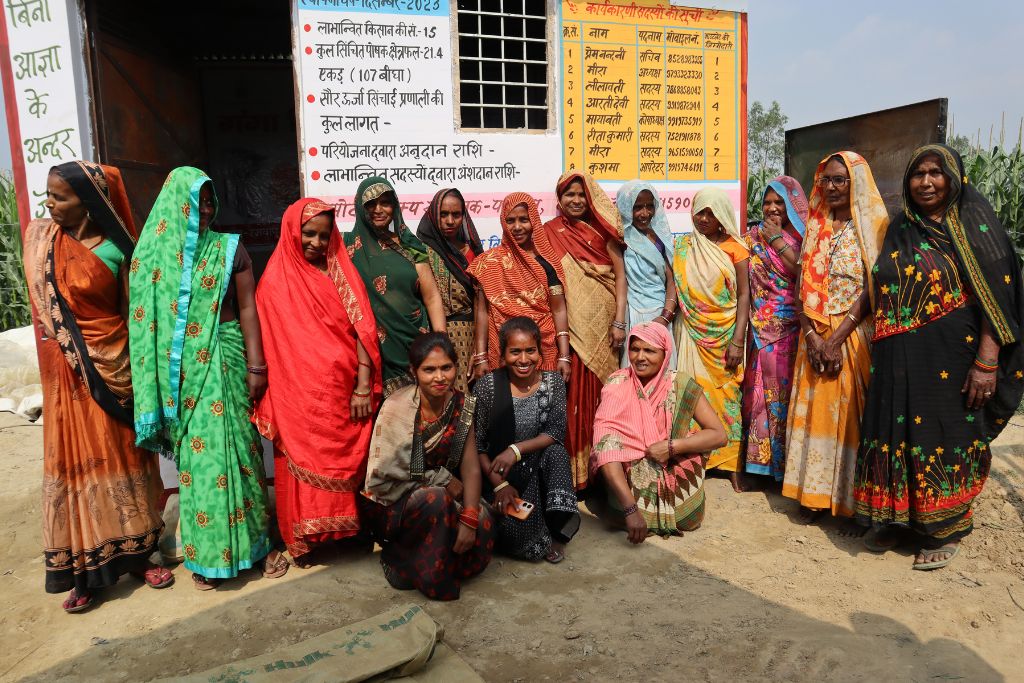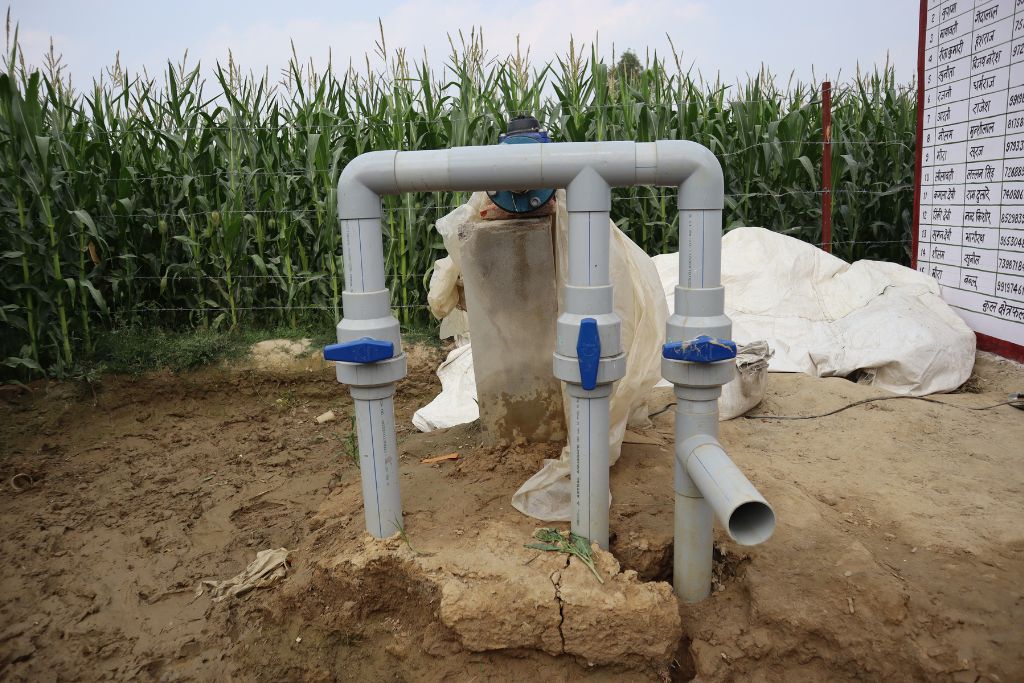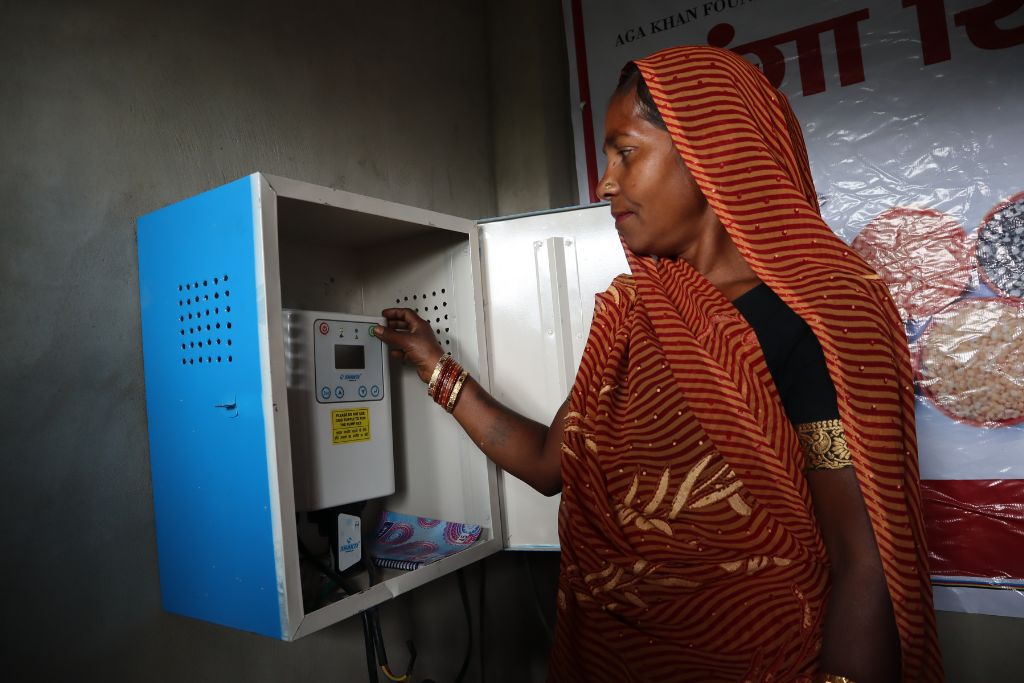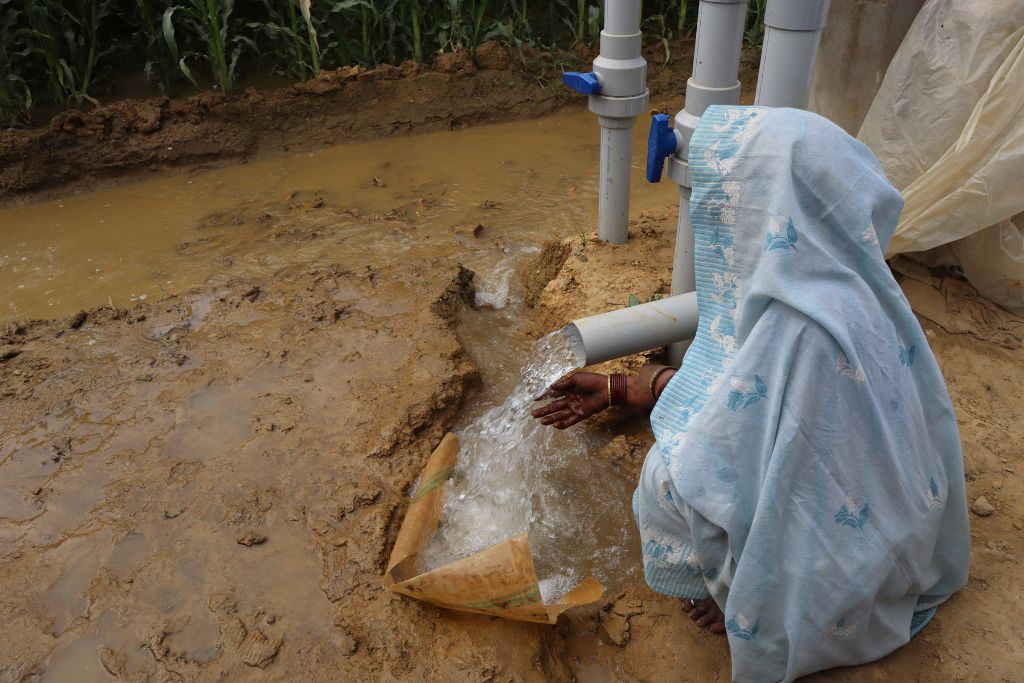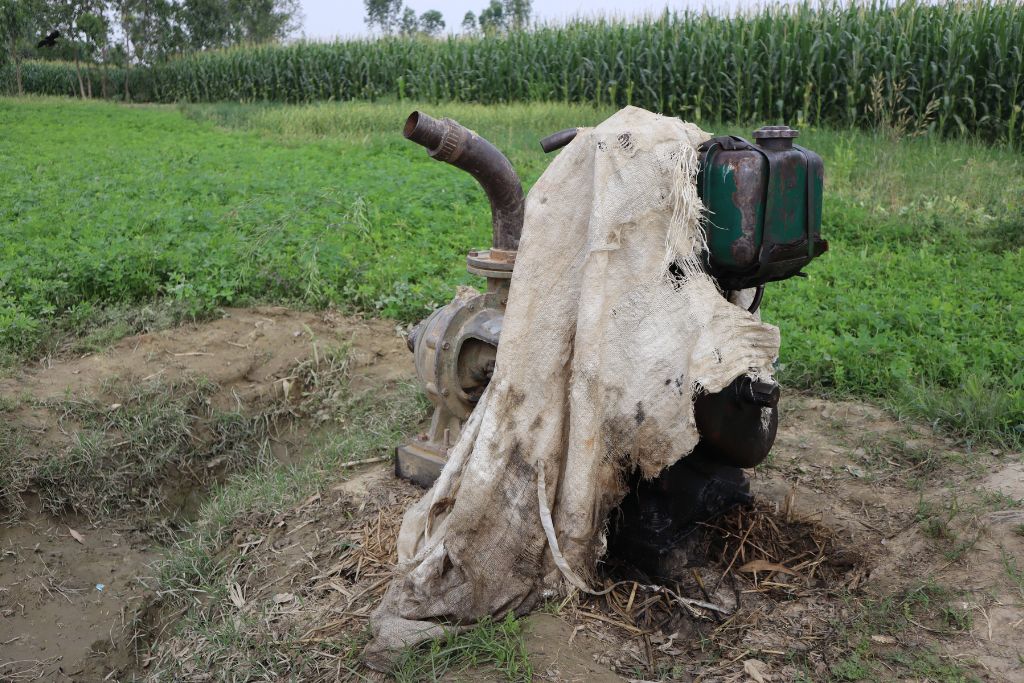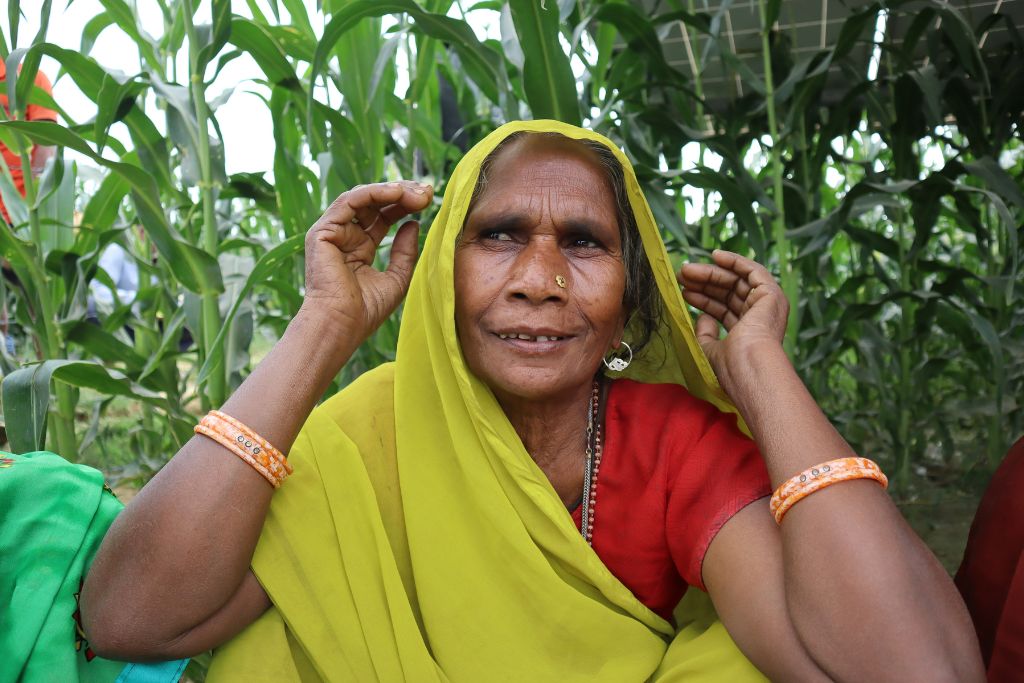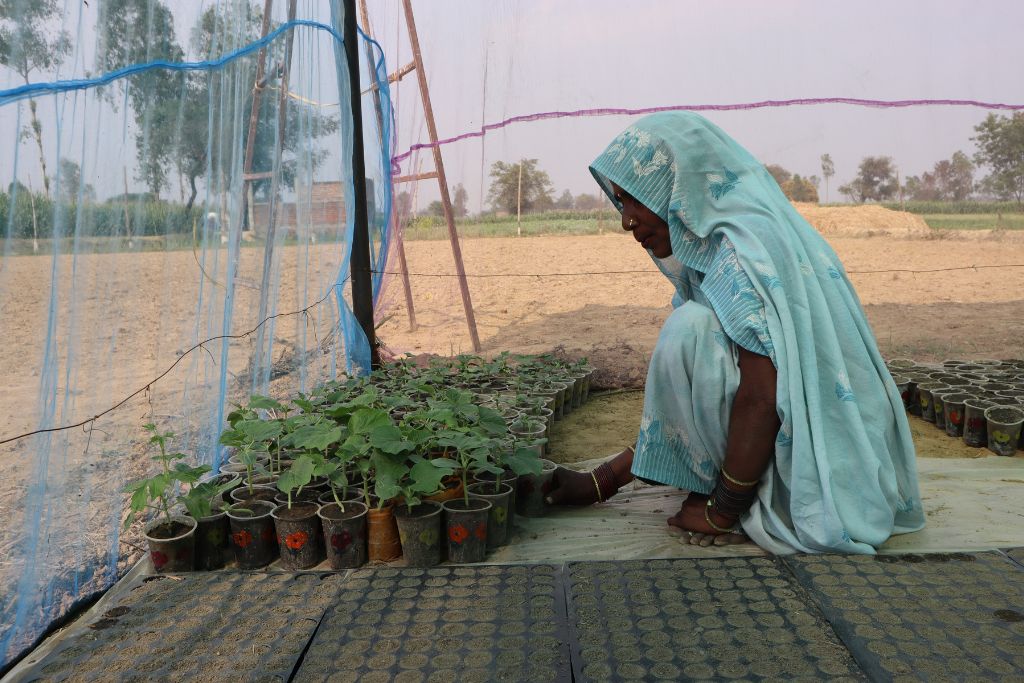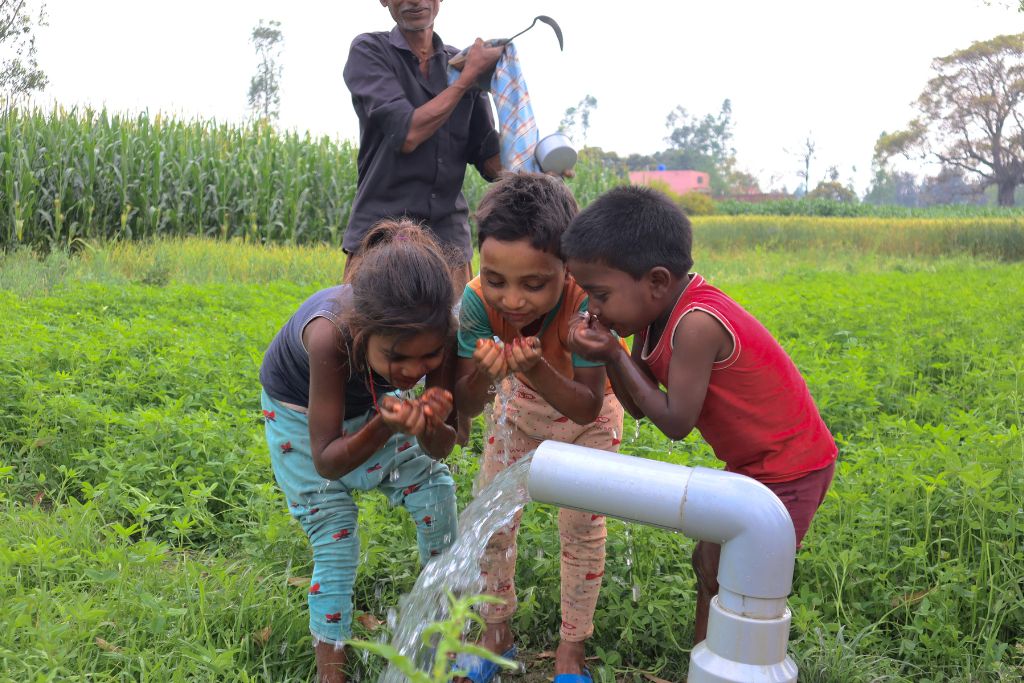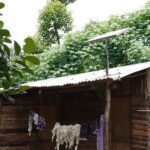As the harsh sun shines over Ramwapur village in Bahraich district of Uttar Pradesh, a team of women makes the most of it. Quite literally. These small and marginal farmers own and operate a small group-based solar power irrigation system. The benefits of this facility have been manifold, with the most important of them being reduced cost of irrigation and greater ease of farming. It has also reduced air pollution and encouraged water conservation.
The solar power irrigation system was set up in December 2023 through Aga Khan Foundation with the support of Induslnd Bank under the flagship Aspirational District Programme. The women farmers manage it under the banner of Ganga Sinchai Vikas Samiti. The solar-irrigation system provides a sustainable irrigation source for an area of 20.6 acres. This benefits 19 families of marginal farmers, who are now able to grow high-value crops such as mint, bitter gourd, bananas, radish and okra, apart from the traditional maize and wheat crops.
This project has drastically reduced irrigation costs — by more than 50 percent. The main solar irrigation system has a water meter attached to it, which monitors each farmer’s water consumption. One unit or 1,000 litres of water is provided at a cost of Rs 2. One acre requires 2,50,000-3,00,000 litres of water, making the total cost Rs 500-600. “Earlier, with diesel-run pumps, the cost would go up to Rs 1,000-1,250,” said Guddi Devi (60), whose family relies entirely on farming for their livelihood.
Premnandini Devi (45), is the president of the Ganga Sinchai Vikas Samiti committee. Standing in the operator’s room, she explained, “Two women from our team collect the water usage charges and pool it into a bank account. We use these funds for machine maintenance, rent of the land on which this system has been installed, as well as the pump operator’s salary.” Farmers are not dependent on any external financial source for the operation of this facility.
The committee holds regular meetings to discuss issues related to the functioning of this project. They talk about ways to improve efficiency of farming, crop yields and losses and the occasional requirement of maintenance of the unit. The discussion also spills over into questions of general welfare of their families – such as issues of education and livelihood. The men in the community are now content standing outside the gate of this facility and to merely listen.
However, this change did not come easy. The women started by doing away with the traditional diesel-operated pump sets. The diesel pumps required at least one or two male members of the family to operate. Men would be responsible for cranking the engine as well as procuring the diesel. The traditional pump sets would have high running costs, contribute to carbon dioxide emissions (around 1,372 kg for 20 acres) and require constant maintenance. These now-defunct machines of Ramwapur once symbolised the lack of women’s independence.
The committee members agreed that they initially faced opposition and scepticism from male members of their families regarding the solar irrigation scheme. Some men believed it wouldn’t deliver in the long run. Others raised objections to having all-women meetings. “After the success of this initiative, everyone wants a piece of the cake,” said Nankunna Devi (65). “Now we have no need for diesel and no need for men’s help.”
The Ganga Sinchai solar irrigation project has also empowered rural farmers to engage in small-scale entrepreneurial ventures with an increase in their disposable income. Kushma Devi (54), has started her own nursery, in which she grows tomatoes, chillies, gourds, cucumbers and so on. She tends to the seeds with water obtained from the irrigation facility and then sells the individual saplings for Rs 5-10 to other farmers. She uses cocopeat to grow her saplings, which is an improved alternative to traditional peat moss, with its high porosity and water-retention capacity.
“Nothing is impossible,” said Premnandini Devi. “Our community-owned project has proved just that.” Every single woman in the committee echoes her confidence. From lacking the drive to speak up in meetings to now mentioning their husband’s names freely while speaking, the women of Ganga Sinchai Vikas Samiti want to set an example for future generations. They firmly believe that their personal welfare is enmeshed with the protection of natural commons, which they depend on.
Also Read: Solar-powered irrigation – A green step forward for farmers
The lead image on top shows the solar-irrigation system located in Ramwapur village in Bahraich district of Uttar Pradesh.
This story has been covered as part of a special collaboration between Village Square and Aga Khan Foundation to highlight stories of change in Bahraich district of Uttar Pradesh.
Sukanya Roy is a freelance journalist based out of Kolkata, and she believes in crafting impactful stories on the themes of gender, human rights, sexuality, environment, and the lives of denotified tribes and communities in India.


